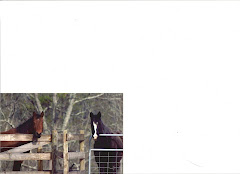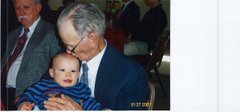He stepped into the pulpit slowly, a man caught in the gale force winds of grief. His ten year old daughter had died with leukemia and our congregation waited for him to begin speaking. His sermons were legendary and sent throughout the country to young and old pastors alike. He was a leader in the civil rights movement in our city. His voice was the voice was the voice of compassion and faith for many of us who struggled to remain connected to our church home. Now he was just a father, a father who had fought an awful, pain filled war against the leukemia that claimed his daughter’s life.
He began to preach, the usual cadences of his speaking awkward and ragged around the edges. His willingness to include us, his larger family of faith, in the darkest moments of his life, bound us to him as travelers in a foreign land. That moment in time, nearly forty years ago, began shaping my beliefs about God in a way that has continued to this day. Whenever I feel or see grief or anger at God, I remember that day, that sermon, and give thanks for the impact of one man’s willingness to share his brokeness from the pulpit. He wrestled with the Angel of Death and forever after was marked as a sign of that encounter. He was the pastor who married us and was our friend. I give thanks for his words that transcend the passage of time still calling me to the way of gratitude for all of life. Thanks be to God for the voice of John Claypool.
These are two excerpts from sermons he preached at Crescent Hill Baptist Church as he wandered through the wilderness during his daughter’s illness and death.
The first of these routes comes highly recommended, and I would label it "the road of unquestioning resignation." If I have been told once, I have been told a hundred times: "We must not question God. We must not try to understand. We have no right to ask or to inquire into the ways of God with men. The way out is to submit. We must silently and totally surrender. We must accept what God does without a word or a murmur."
Now there is both ancient and practical wisdom in this approach to deep sorrow, and in one sense it is utterly realistic, for if I have learned anything in all of this, it is just how weak and ineffectual we humans are against the immensities of life and death. Since I was powerless a month ago to do anything to avert this agony, why bother now to struggle with it? I repeat, there is a wisdom of sorts down this road of unquestioning resignation. The only trouble is, it is not a Christian wisdom, and in fact it is a denial of the heart of our faith. I have been frankly dismayed at how many deeply devoted Christians have recommended this way to me, and I have wondered to myself: "Don’t they realize what such an approach implies about the whole of existence?"To put it bluntly, this sort of silent submission undermines the most precious dimension of our existence; namely, the personal dimension. It reduces all of life to a mechanical power transaction. To be sure, a leaf submits to the wind without saying a word, and a rock allows the flood water to do whatever it pleases without murmur, but are these appropriate analogies for the relation of God and man?According to the Bible they are not, for in this document the mystery of Godness is depicted as involving more than brute power. The One who moves through these pages is by nature a Being of love, "a Father who pitieth his children," rather than a Force who knocks about a lot of helpless objects. And of course, words and questions and dialogue back and forth are at the heart of the way persons – especially fathers and children – ought to relate.Where, then, did we Christians ever get the notion that we must not question God or that we have no right to pour out our souls to him and ask, Why? Did not Job in the Old Testament cry out to God in the midst of his agony and attempt to interrogate the Almighty? Did not Jesus himself agonize with God in Gethsemane, telling him how he felt and what he wanted, and then cry out from the Cross: "My God, My God! Why? Why have you forsaken me" Would the verse "Ask and it shall be given to you, seek and you should find, knock and it shall be opened unto you" ever have appeared in Holy Scripture if unquestioning acquiescence had been the way to meet tragedy?I, for one, see nothing but a dead end down this road of silent resignation, for it is one of those medicines that cures at the expense of killing the organism it is supposed to heal. After all, my questions in the face of this event are a real part of me now, and to deny them or to suppress them by bowing mechanically to a superior Force is an affront not only to God and to my own nature but to the kind of relation we are supposed to have.There is more honest faith in an act of questioning than in the act of silent submission, for implicit in the very asking is the faith that some light can be given. This is why I found such help in a letter I received from Dr. Carlyle Marney just before Laura Lue died. He admitted that he had no word for the suffering of the innocent and never had had, but he said, "I fall back on the idea that God has a lot to give an account for."Now, to be honest, no one ever said anything like that to me before, and at first, it was a little shocking, but the more I thought about it, the truer it became to the faith of the bible. At no point in its teaching is there ever an indication that God wants us to remain like rocks or even little infants in our relationship to Him. He wants us to become mature sons and daughters, which means that he holds us responsible for our actions and expects us to hold him responsible for his!I do not believe God wants me to hold in these questions that burn in my heart and soul – questions like: "Why is there leukemia? Why are children of promise cut down at the age of ten? Why did you let Laura Lue suffer so excruciatingly and then let her die?" I am really honoring God when I come clean and say, "You owe me an explanation." For, you see, I believe he will be able to give such an accounting when all the facts are in, and until then, it is valid to ask.It is not rebelliousness, then, but faith that keeps me from finding any promise down the road of unquestioning resignation. This approach is closer to pagan Stoicism than Christian humility. I have no choice but to submit to this event of death. Still, the questions remain, and I believe I will honor God by continuing to ask and seek and knock rather than resigning myself like a leaf or a rock.
Having said that, however, I need to hasten on to identify a second dead-end route, lest I badly confuse you. It is what I call the "road of total intellectual understanding," the way of explaining everything completely or tying up the loose ends in a tidy answer. To be sure, I have just said that I believe some day God will be able to give an account for what he has done and show how it all fits together, but that eschaton is not now. Accordingly, any attempt at this moment to absolutize or to find an answer that will account for all the evidence will either end in failure or be a real distortion of reality.I perhaps need to confess to you that at times in the last few months I have been tempted to conclude that our whole existence is utterly absurd. More than once I looked radical doubt full in the face and honestly wondered if all our talk about love and purpose and a fatherly God were not simply a veil of fantasy that we pathetic humans had projected against the void. For you see, in light of the evidence closest at hand, to have absolutized at all would have been to conclude that all was absurd and that there was no Ultimate Purpose. There were times, for example, when Laura Lue was hurting so intensely that she had to bite on a rag and used to beg me to pray to God to take away that awful pain. I would kneel down beside her bed and pray with all the faith and conviction of my soul, and nothing would happen except the pain continuing to rage on. Or again, that same negative conclusion tempted when she asked me in the dark of the night: "When will this leukemia go away?" I answered "I don’t know, darling, but we are doing everything we know to make that happen." Then she said: "Have you asked God when it will go away?" And I said: "Yes, you have heard me pray to him many times." But she persisted: "What did he say? When did he say it would go away?" And I had to admit to myself he had not said a word! I had done a lot of talking and praying and pleading, but the response of the heavens had been silence.But though in moments like that I was tempted to absolutize about life and arrange all existence around that principle, clearer moments made me realize that such simplicity would not correspond to reality. For you see, along the utter absurdity of what was happening to this little girl were countless other experiences that were full of love and purpose and meaning. From people in the clinic and at the hospital, from unnumbered hosts of you the church and the community, came evidences of goodness that were anything but absurd. And I realized that if I were going to judge it all fairly, this data had to be balanced in equal weight alongside the darkness.I was reminded of a conclusion I came to a long time ago: that you do not solve all the intellectual problems by deciding that everything is absurd. To be sure, it is hard to account for evil on the assumption that God is all-good and all-powerful, but if you do go away with that assumption and go to the other extreme, you are then left with the problem of how to account for all the goodness and purpose that most assuredly also exist. This leads me to conclude that expecting to find one total explanation or answer to this situation is futile.Never has the stark paradox of real darkness alongside of real light been more apparent to me than in the last days, which means I shall continue to ask questions, but not expect, in history at least, to find an answer. George Buttrick is right in saying that life is essentially a series of events to be borne and lived through rather than intellectual riddles to be played with and solved. Courage is worth ten times more than any answer that claims to be total. We cannot absolutize in such a way that either the darkness swallows up the light or the light the darkness. To do so would be untrue to our human condition that "knows in part" and does all its seeing "as through a glass darkly."For me, at least, then, the roads called unquestioning resignation and total understanding hold no promise of leading out of the darkness where I lost my child
I call this one "the road of gratitude," and interestingly enough, it is basic to the story of Abraham and Isaac that serves as our text. Years ago, when I first started taking the Bible seriously, this whole episode used to bother me a good deal. What kind of jealous God is it, I wondered, who demands even a man’s child as a sign of devotion? As I moved more deeply into the biblical revelation, however, I came to realize that the point at issue in this event was not that at all. What God was trying to teach Abraham here and throughout his whole experience was the basic understanding that life is gift – pure, simple, sheer gift – and that we here on earth are to relate to it accordingly.The promise that came originally to Abraham from God was literally "out of the blue." Just as he had not been in on the creation of the world or his own birth, so Abraham had done nothing to earn the right of having a land of his own or descendents more numerous than the stars. Such a promise came as a pure gift from God. Abraham was called on to receive it, to participate in it fully and joyfully, to handle it with the open hands of gratitude. And this, of course, was a picture of how man was meant to relate to existence itself. Life, too, is a gift, and it is to be received and participated in and handled with gratitude.But right here is the problem. God was having to start all over again with Abraham because mankind had lost this view of life and instead had tried to earn life by the ardors of legalism, or to possess it totally as if it belonged to them alone. And all these mistaken relations served only to curdle life and make of it a crushing burden or a prison of anxiety.The whole point in the Abraham saga lies in God’s effort to restore men to the right vision of life and a right relationship to it. Only when life is seen as a gift and received with the open hands of gratitude is it the joy that God meant for it to be. And these were the truths God was seeking to emphasize as he waited so long to send Isaac and then asked for him back. Did Abraham realize that all was gift, and not something to be earned or to be possessed, but received, participated in, held freely in gratefulness?This is the most helpful perspective I have found in the last weeks. And of all the roads to travel, it offers the best promise of being a way out.Here, in a nutshell, is what it means to understand something as a gift and to handle it with gratitude, a perspective biblical religion puts around all of life. And I am here to testify that this is the only way down from the Mountain of Loss. I do not mean to say that such a perspective makes things easy, for it does not. But at least it makes things bearable when I remember that Laura Lue was a gift, pure and simple, something I neither earned nor deserved nor had a right to. And when I remember that the appropriate response to a gift, even when it is taken away, is gratitude, then I am better able to try and thank God that I was ever given her in the first place.Even though it is very hard, I am doing my best to learn this discipline now. Everywhere I turn I am surrounded by reminders of her – things we did together, things she said, things she loved. And in the presence of the reminders, I have two alternatives: dwelling on the fact that she has been taken away, I can dissolve in remorse that she is gone forever; or, focusing on the wonder that she was given to us at all, I can learn to be grateful that we shared life, even for an all-too-short ten years. Only three choices, and believe me, the only way out is the way of gratitude. The way or remorse does not alter the stark reality one whit and only makes matters worse. The way of gratitude does not alleviate the pain, but it somehow puts some light around the darkness and builds strength to begin to move on.Now, having gone full circle, I come back to caution you not to look on me this morning as any authority on how to conquer grief. Rather, I need you to help me on down the way, and this is how: do not counsel me not to question, and do not attempt to give me any total answer. Neither one of those ways works for me. The greatest thing you can do is to remind me that life is a gift – every last particle of it, and that the way to handle a gift is to be grateful. You can really help me if you will never let me forget this fact, just as I hope maybe I may have helped this morning by reminding you of the same thing. As I see it now, there is only one way out of this darkness – the way of gratitude. Will you join me in trying to learn how to travel this way?
Subscribe to:
Post Comments (Atom)









No comments:
Post a Comment